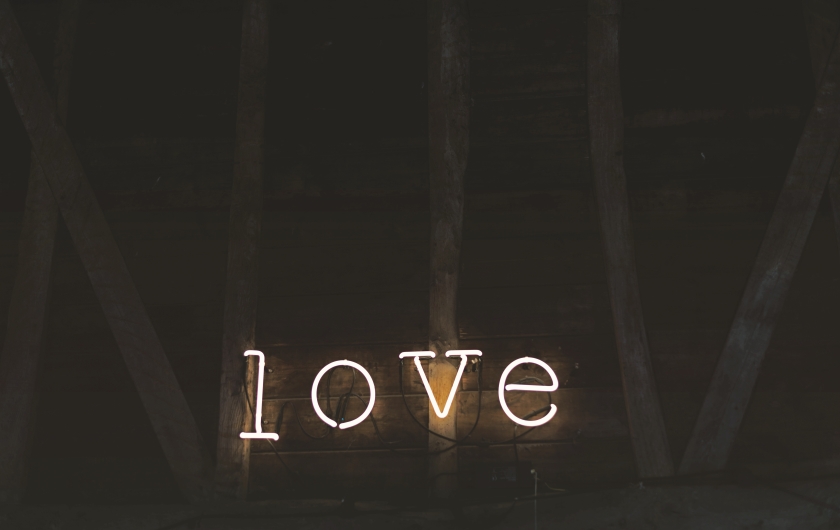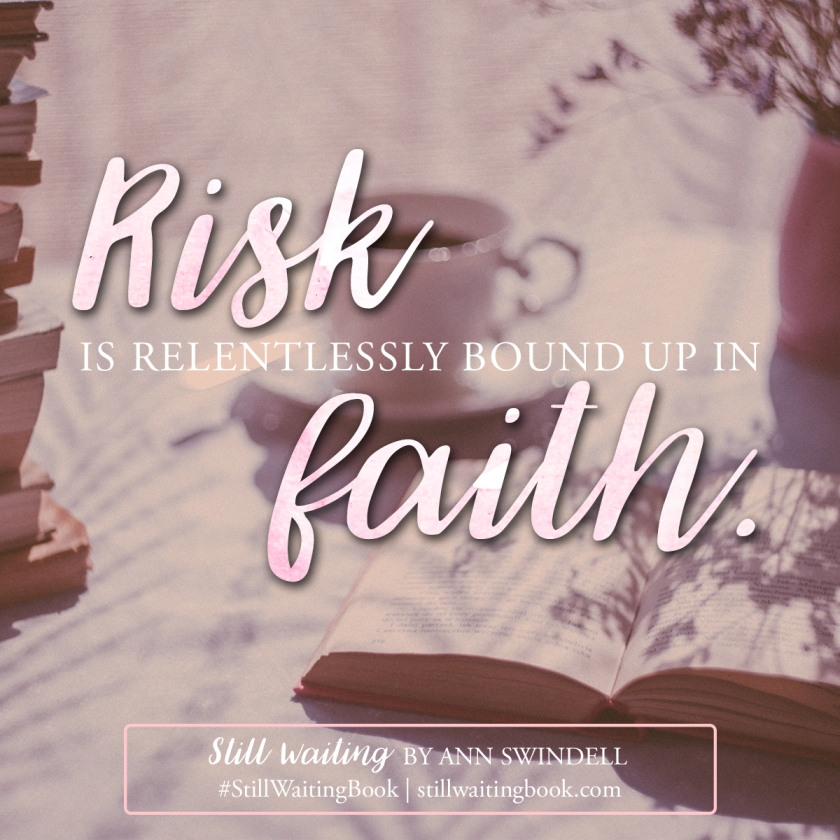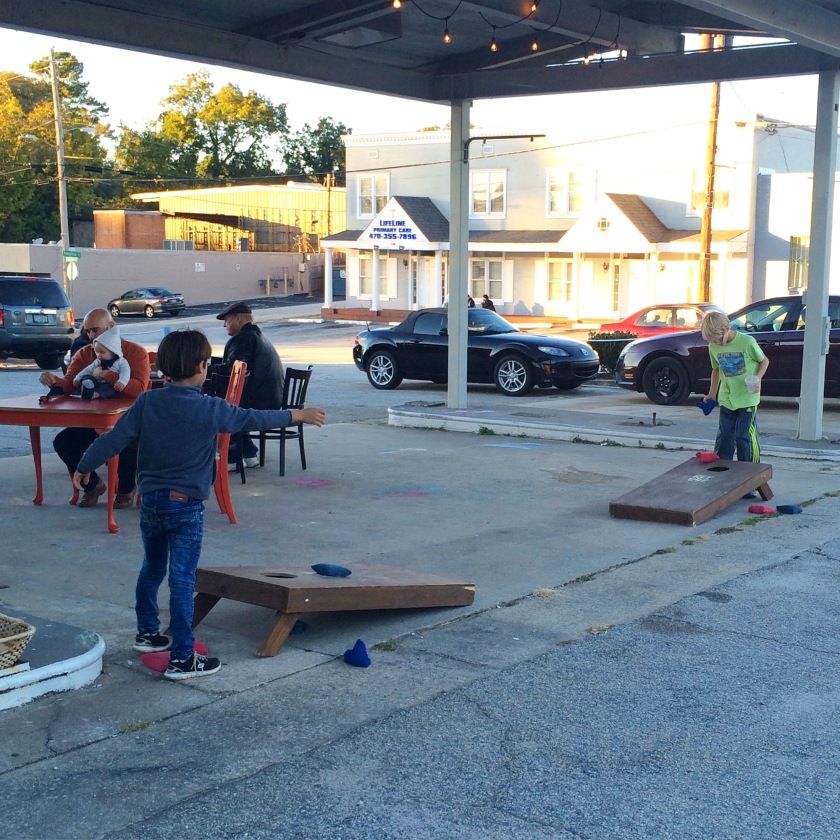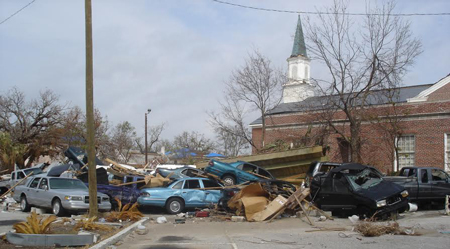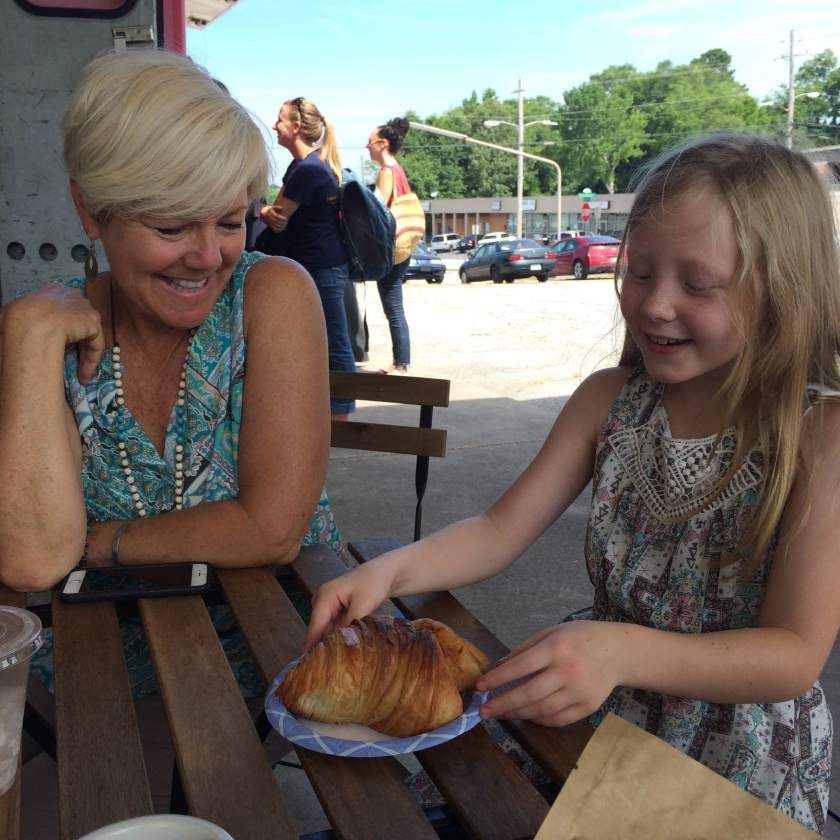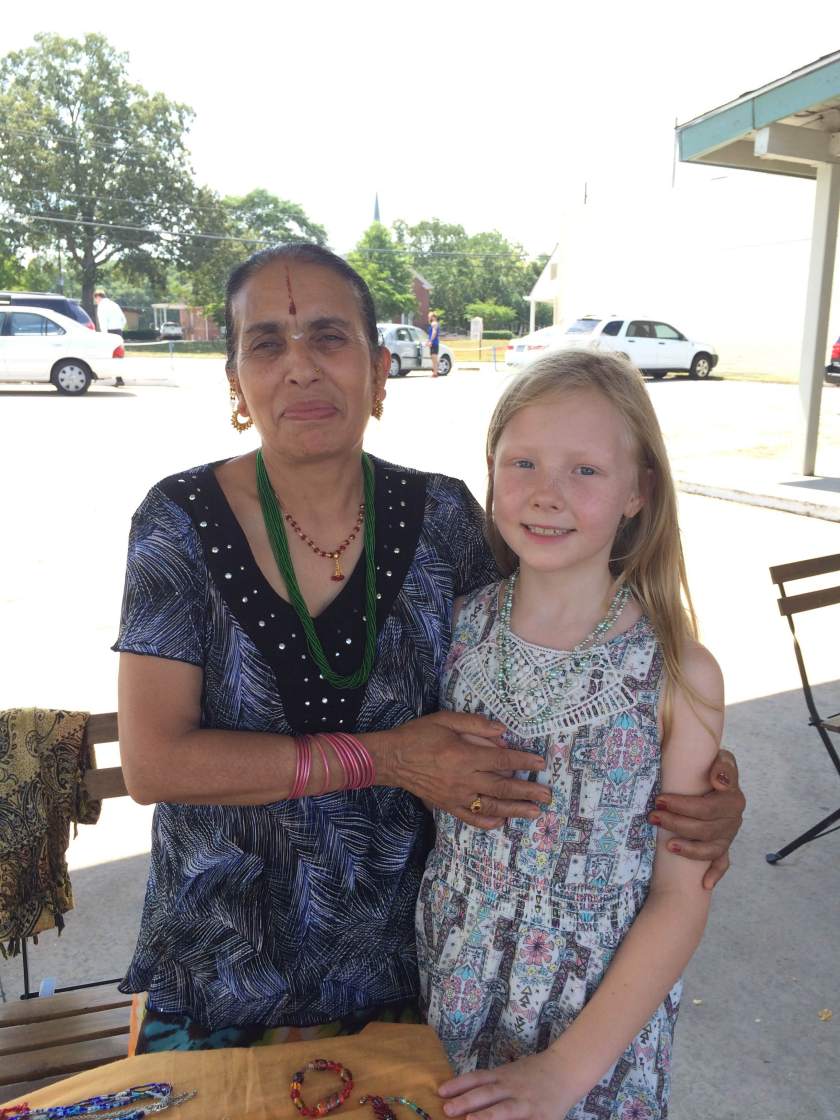Every time there’s another terror attack, my primal fears are flared up. I do a quick security screening on my life:
- doors=locked
- kids=safe
- neighborhood=safe
- poverty level of my town=low
- everyone around me=looks like me
- travel plans=none
- closest mosque=don’t know
Then I breathe easier and thank God that I live an ocean away from ISIS.
I’m not proud of it. But I do think this way.
Some people don’t get to live an ocean away from ISIS. Some people live in the nightmare of ISIS or Boko Haram or thousands of other places where evil and power and terror are the norm. They are literally dying, running for their lives, or dying trying. I might think, “O God, help them! Tell me what to do!” And then I think right after that, “Thank God my life’s not like that. Thank you for keeping me safe.”
I’m not proud of it. But I do pray this way.
This year one part of our Family Compassion Focus is learning more about refugees. It hasn’t been easy. One of my kids is in the middle of a huge faith crisis because it looks to them like God doesn’t care about refugees at all, and some of the Christians they know tell them refugees are sneaky, evil people coming to kill us. My heart hurts.
Part of serving a group like refugees (or the homeless, or orphans, etc.) is to research, so we can pray and act in informed ways. The new book, Seeking Refuge: On the Shores of the Global Refugee Crisis by Matthew Soerens, Stephan Bauman, and Dr. Issam Smeir, has been a tremendous resource. I read this book in one day last month. I was captivated by it’s clear, practical, compelling, and encouraging message. I wrote Matthew and asked if I could feature the book for a World Changer Wednesday.
I was surprised and touched by Matthew’s quick, generous response. In the midst of a very busy season he responded thoughtfully to my interview questions and follow up questions. It’s been a gift to have an expert in the refugee crisis help me begin to understand what my family might be called to do in times like this.
Please read through his answers below. It’s not a thorough summary of Seeking Refuge, but it’s a good start. It will change your heart.
Hi Matthew! Tell us about yourself!
I grew up in Northeastern Wisconsin and moved to suburban Chicago to study at Wheaton College. I interned with World Relief as a college student in Nicaragua, and from there was hired by World Relief’s office in Wheaton in 2006, working with our Immigrant Legal Services program to help local churches host naturalization workshops for refugees and other immigrants who want to and are eligible to become U.S. citizens.
Around the same time, I began volunteering with a newly arrived refugee family from Rwanda that World Relief had resettled in Glen Ellyn, Illinois. They became dear friends, and when I graduated from college in 2006, I moved into their apartment complex, a vibrant community where most of my neighbors were refugees or other immigrants.
A few years after I moved into that apartment complex, a team from my church, Church of the Resurrection, became a Good Neighbor Team with World Relief and was paired with a refugee family from the West African country of Togo. Serving as a part of that team was the impetus for me to get to know Diana Wood, who joined the Good Neighbor Team in part because the family spoke French, and Diana was a high school French teacher.
Over time, as she fell in love with the community through frequent visits, Diana ended up moving into the same neighborhood as well with a roommate, as did a few other folks from our church and one or two other local congregations. We’d gather on a regular basis for evening prayer, for meals, and to host kids clubs and Bible studies for kids in our community. Diana and I became very close friends, and then we started dating in 2010. In June 2011, we were married, and held our reception right in the courtyard of our apartment complex.

Matthew & Diana Soeren’s wedding day
We were forced to leave that apartment complex (along with most of our refugee neighbors) in 2014 when it was purchased by a new company that dramatically increased rents and denied us the option of renewing our lease. That neighborhood is an incredibly important part of my story and our family’s story. I wouldn’t be in a position to write this book were it not for the relationships I formed in the eight years I lived there.
We’ve since moved further west, to Aurora, Illinois, and our family has grown to include two delightful children: Zipporah (now 3) and Zephaniah (1).
I’ve worked at World Relief ever since 2006. In 2009—in large part because I was troubled by the discrepancies between the stories of my immigrant neighbors whom I knew personally and much of the rhetoric about immigrants that I’d hear in the media and from politicians, and between what I read in the Bible about God’s heart for immigrants and the attitudes toward immigrants in many local churches—I worked with a friend and colleague, Jenny Yang, to write a book, Welcoming the Stranger, seeking to provide a biblical perspective on immigration.

“By the count of theologian Orlando Espín, ‘Welcoming the stranger…is the most often repeated commandment in the Hebrew Scriptures, with the exception of the imperative to worship only the one God.'” – from “Seeking Refuge” page 30.
With that book’s publication, I’ve had a lot more opportunities to speak and consult with local churches around the country on immigration issues, which eventually became the main focus of my role with World Relief. My job as US Director of Church Mobilization is to make sure that our staff in our 27 offices around the US are well supported, equipped, and trained as they serve and empower local churches to care for refugees and other vulnerable immigrants in their communities.

Matthew Soerens, co-author of “Seeking Refuge: On the Shores of the Global Refugee Crisis”
What is your new book, Seeking Refuge, about?
When we wrote Welcoming the Stranger eight or nine years ago, refugees were so un-controversial that we barely mentioned them—at the time, illegal immigration was a big controversial question, but almost everyone was sympathetic (at least in theory) to the plight of refugees, and the U.S. Refugee Resettlement Program always drew broad bipartisan support.
That changed suddenly last fall, beginning in September, when social media networks lit up with a horrific image of a lifeless 3-year-old boy, Alan Kurdi, washed ashore on a Turkish beach after a failed attempt to reach safety in Europe. Suddenly, the world began to focus on a refugee crisis in Syria that has really been happening for more than five years now, and which is a part of a larger global refugee crisis.
Worldwide, there are more than **65 million people** who have been forcibly displaced from their home by violence or persecution.
As these realities sunk in for a lot of Americans, the country—and also the Church within the US—was divided in its response to this refugee crisis. In fact, I think that divide strikes right down many of us as individuals: you can’t see an image like the one of Alan Kurdi without feeling compassion. I look at his little Velcro shoes, and they’re just like the ones I fasten onto my own son each day. My heart breaks for that father.
And yet, in a subconscious pivot, I also wonder: what sort of horror is he fleeing? What sort of terror compels a parent to get onto that raft in the first place? And how do we keep it from coming here?
Those conflicting emotions—compassion and fear—are the options before us. We wrote Seeking Refuge to speak directly into that tension, challenging those who profess to follow Jesus, in particular, to respond in ways that are grounded in Scripture, driven by a sense of mission, and rooted in the facts.

When did you decide to write Seeking Refuge? How was writing it as a group?
After the terrorist attacks in Paris in November (which we now know were perpetrated by European nationals, not refugees, but which triggered a significant pushback to the idea of Syrian refugees being resettled to the US) we felt like there was a real need for a distinctively Christian approach to this question, as well as a way to help put a human face on the term “refugee” and to address some of the misconceptions that began to be spread. Moody Publishers agreed, and reached out to World Relief, because of our long history of empowering churches to serve refugees both in the US and globally, to ask if we’d consider writing a book on a fairly short timeline.
When Moody approached us, we knew we’d need a team to write the book on a quick timeframe. While I bring my own experience living among refugees in the US and working with many local churches, Stephan, who has served for the past several years as World Relief’s president and lived and worked internationally for many years before that, brings a unique perspective to the underlying root causes of refugee crises. And Issam is a brilliant psychologist who understands the impact of trauma on refugees probably as well as almost anyone in the world, and he also brings his personal experience, as the child of Palestinian refugees to Jordan. It was a joy to work together with these remarkable colleagues.

“Something is missionally malignant whenever we are willing to make great sacrifices to travel the world to reach a people group but are not wiling to walk across the street.” – JD Payne, from “Seeking Refuge” page 46.
What is your goal for the book? What do you hope to see changed in churches and culture?
Polling from LifeWay Research finds that American evangelical Christians are actually more likely to see the arrival of refugees and other immigrants as a threat or a burden of some sort than they are to say that their arrival presents an opportunity to introduce them to Jesus Christ. They also find that only 12% of evangelical Christians say they think about these issues primarily from the perspective of the Bible, and that only about 8% of Protestant churches are currently involved in serving refugees in their communities.
I find those statistics really troubling, and more than anything I fear that the Church—particularly in the US—is at risk of missing an opportunity to “let our light shine” as Jesus instructs us to, so that the world—millions of refugees and a few billion others beyond that who are watching our response—might see our Christ-like response and praise our Father in heaven.

“That there may be risk or cost involved is not relevant to the mandate to love.” – from “Seeking Refuge” page 35.
What is the most common misperception about refugees that you’d like to clear up?
There are many, but I think that the most common misperception right now is the idea that the US has no process to vet or screen refugees, that they’re somehow just showing up and we have no idea who they are.
In reality, every single one of the 70,000 refugees who came into the US last year went through a through screening process that involves the US Departments of State, Defense, and Homeland Security, the FBI, and the National Counterterrorism Center. They went through multiple in-person interviews, biographic and biometric background checks, and a health screening. That process usually takes at least 18 months to complete and often much longer, and it’s actually the most thorough vetting that any category of visitor or immigrant to the US is required to undergo.

US Refugee Screening Process – from “Seeking Refuge” page 79. Used with permission.
It’s simply not logical that a would-be terrorist would go through the most difficult screening process to come to the US when there are 70 million visitors who come to the US who are not required to go through nearly as strenuous as a vetting process (and, not to mention, the majority of perpetrators of terrorist attacks in the US post-9/11 have actually been US citizens).
The best evidence of the efficacy of this vetting process is the reality that, of more than 3 million refugees resettled to the US since the late 1970s, not a single one has ever committed an act of terrorism in the US. That’s a strong record, and it gives me a lot of confidence in the vetting process.

Refugees Admitted to the United States, by Fiscal Year – from “Seeking Refuge” page 86. Used with permission. (Note that the US admitted almost 3x more refugees in 1980 than we did last year.)
I should add that, biblically, I’m not sure this should matter—we are called to love our neighbors, not to love our neighbors so long as it is safe, convenient, and makes us wealthier. The Good Samaritan, Jesus’ example of neighborly love, did put himself at risk by stopping on a dangerous road to help a man (notably, a man of a different ethnicity and religion) who had been beaten. Jesus’ command is to “go and do likewise.” I worry that we’ve turned safety into an idol. But, in the case of welcoming refugees in the US, I think it’s largely a moot question, because the risks really are very minimal.

“As Rick Warren notes, “The church must always show compassion…A good Samaritan doesn’t stop and ask the injured person, ‘Are you legal or illegal?'” Nor, we would add, ‘Do you meet the precise legal definition of a refugee?'” – from “Seeking Refuge” page 111.
What is the hardest part about working with refugees?
Refugees have, by definition, lived through situations that most Americans can hardly fathom. And it can be overwhelming—and in some cases even vicariously traumatizing—to hear their stories. It’s easier to live in a bubble of our own convenience, unaware of the suffering that many, including many brothers and sisters in Christ, are enduring. While we’re obviously really challenging the Church to step up to the opportunity to welcome refugees, I don’t want to sugarcoat the reality: it can be really hard, and there will inevitably be cultural misunderstandings, as well. But I think it’s both what we’re called to as followers of Jesus (who, after all, was a refugee himself) and ultimately incredibly rewarding.

According to Tim Keller, the strangers whom Jesus talked about ‘were immigrants and refugees, and they were…to be “invited in.” They were not merely to be sent to a shelter but were to be welcomed into the disciples’ homes and lives and, it is implied, given advocacy, friendship, and the basics for pursuing life in society.'” – from “Seeking Refuge” page 97.
What is the best part about working with refugees?
My first thought was: the food. I gained about 40 pounds in the time I lived in my old neighborhood, and I think that’s mostly from the remarkable hospitality of my neighbors, who would drop off food for me all the time and wouldn’t allow me to enter the apartment without eating something.
Seriously, though, I’ve learned so much from the resilience of my refugee neighbors, especially those who were persecuted for their Christian faith in their countries of origin. We might face some mild mockery in the US because of our Christian faith, but most of it don’t really know what it means to “pick up our crosses” and follow Jesus, but as we welcome refugees, some will be able to help us understand.

17 years. What perseverance, grit, courage and hope. – from “Seeking Refuge” page 88.
How is compassion a part of Seeking Refuge?
Henri Nouwen, one of my favorite authors, writes that compassion is literally to suffer with. When we step into the lives of refugees in our communities—to serve them, yes, but also to learn from them—we can, in a small way, share in their suffering. But we also get to share in their joy, as well, to “rejoice with those who rejoice” even as we also “mourn with those who mourn” (Romans 12:15). My life is so much richer for having had the opportunity to both lament and celebrate with my refugee neighbors.
How can children and families love and serve those Seeking Refuge?
That’s a fantastic question—when our daughter Zipporah was born, she actually opened up relationships with refugee neighbors we’d never really known before, because everyone loves an adorable baby. As she’s grown, just by being a fun-loving, creative kid, she’s been serving our neighbors in a unique way. Since moving to Aurora, we had an Iraqi refugee couple living in our house for about a year. They were quite elderly and facing some health problems, and also missing their own grandchildren who had found safety in Europe, but they loved having Zipporah and Zephaniah go upstairs to visit them. They’d feed them cookies (more than their parents would have) and play with them and it so obviously brought them joy. So kids have a very important role to play.
I also think—and I hope we’re doing this with our kids—that it’s so important to teach our children to be welcoming to those who are different. A refugee girl in my wife Diana’s Bible study used to share, as her prayer request on a regular basis, that she prayed she would have a friend to sit with at lunch. Kids at her public school weren’t necessarily mean to her—they just mostly ignored her, but she felt very isolated. I remember hearing that and thinking: where are all the nice 7th graders from our church and the dozens of other churches in this community? Those who profess to be Christians should be the first to welcome those who are new—in the Greek of the New Testament, to “practice hospitality” (Romans 12:13) literally means to “practice loving strangers”—and that can start with our kids.
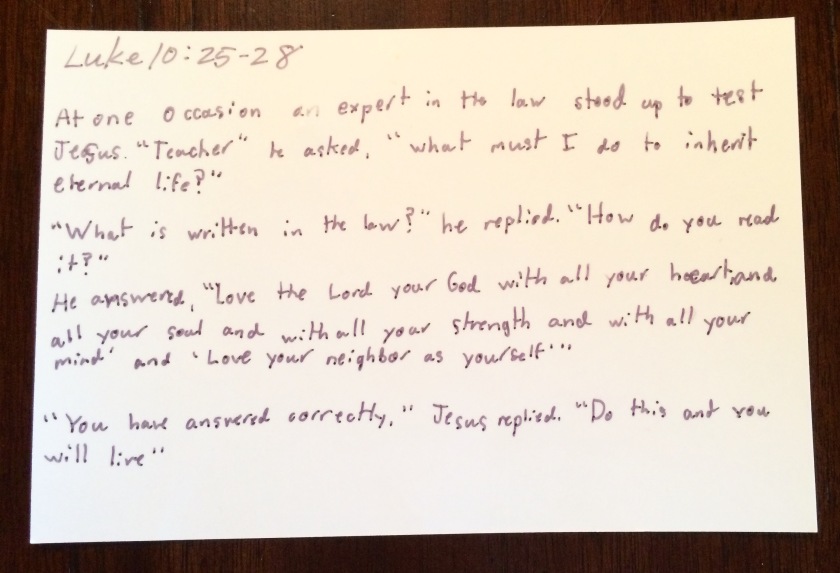
Team Fritz has been working on memorizing the whole Good Samaritan story all summer. They began writing it out for us to read in crazy voices at breakfast. It starts with someone wanting to know what he can do to get eternal life.

It’s hard to hear my kids quoting words about a person being stripped, beaten, and left half dead. But it’s really happening in the world. Lord, have mercy.

The religious people ignored the half-dead person. They made effort to get far away on the other side. I’ve done that. I do that. (transcribed by Caleb)

“One day we must come to see that the whole Jericho Road must be transformed so that men and women will not be constantly beaten and robbed as they make their journey of life’s highway.” – Martin Luther King, Jr. – From “Seeking Refuge” page 170.
Thank you, Matthew Soerens! Thank you for living this intentional life, serving refugees, and teaching us a Christian response. Lord, may you be pleased with the way we love and welcome refugees.
Options for Next Steps:
1. Listen to Matthew’s recent interview on NPR
2. Purchase Seeking Refuge (for you and your church)
3. Try a 7-day online devotional about what the Bible says about refugees and other immigrants (I hope to do this during weekend dinners with my family)
4. Download this free small group discussion guide (perhaps do it with friends, colleagues, commuting buddies, or neighbors)
5. Research the ways your state is welcoming or excluding refugees.
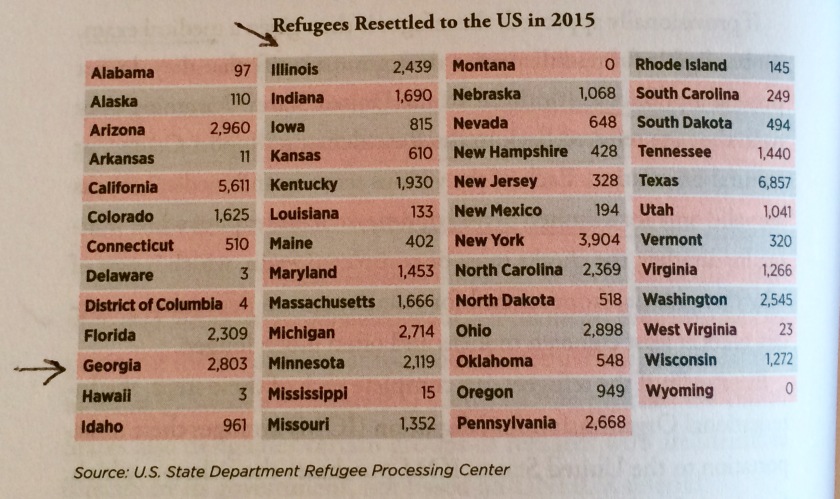
Refugees Resettled to the US in 2015 – from “Seeking Refuge” page 92. Used with permission. (Were you expecting to see lower or higher numbers in your state?)

Which Governors Oppose New Syrian Refugees? 11/16/15 from “Seeking Refuge” page 173. Used with permission. (Does this map surprise you? comfort you? distress you?)
6. Listen to Matthew’s more extensive interview on Moody Radio
7. Ask God, as you walk down the street or brush your teeth, “Do you want me to do something for Refugees?” Make sure you wait and listen for a response.
©Aimee Fritz & Family Compassion Focus, 2016.
















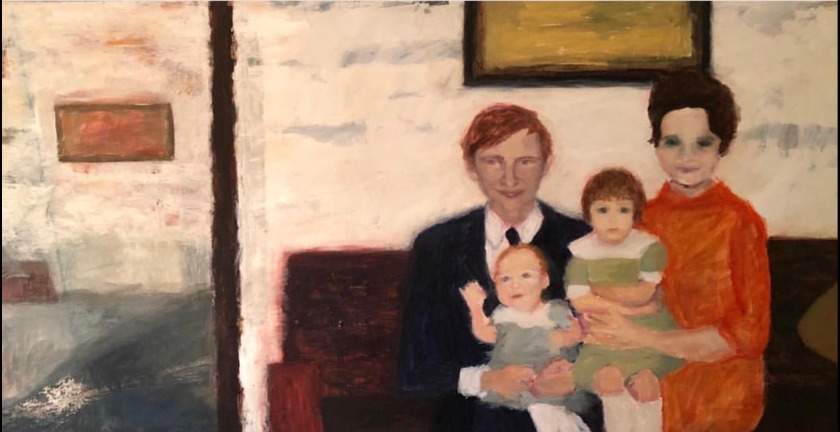











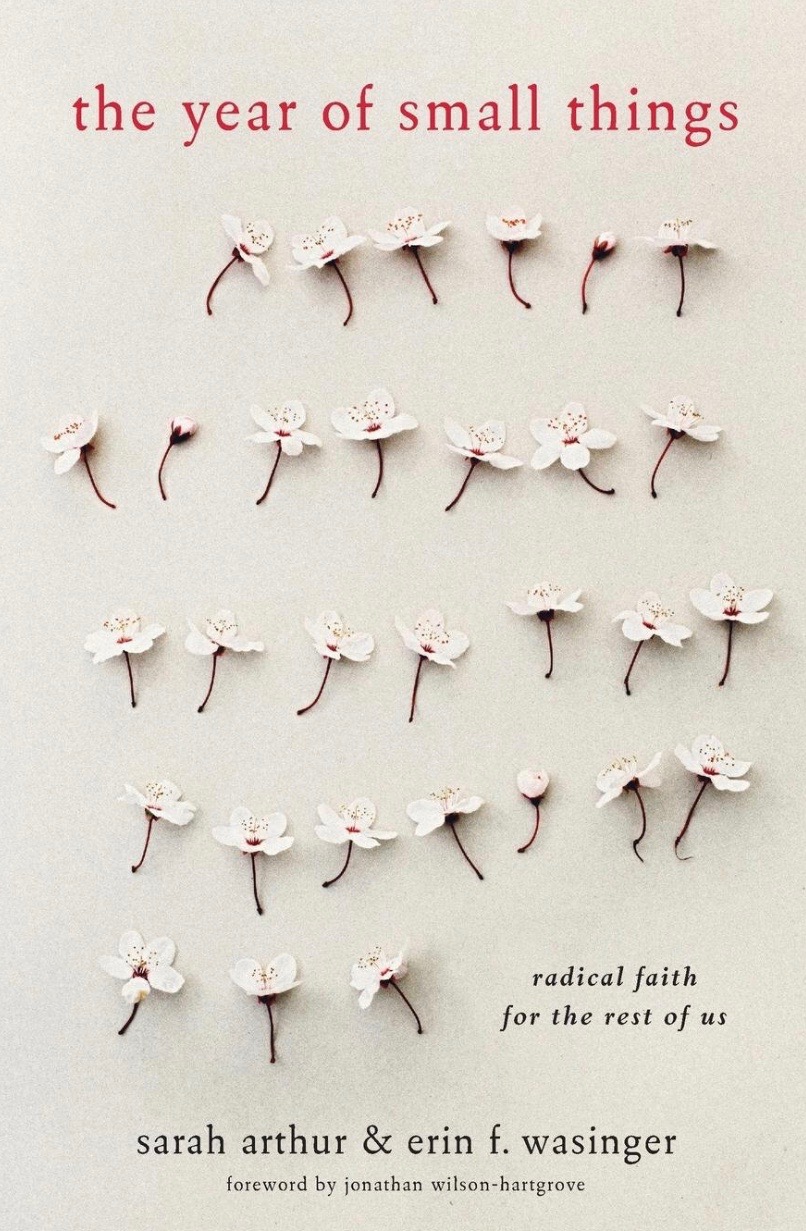

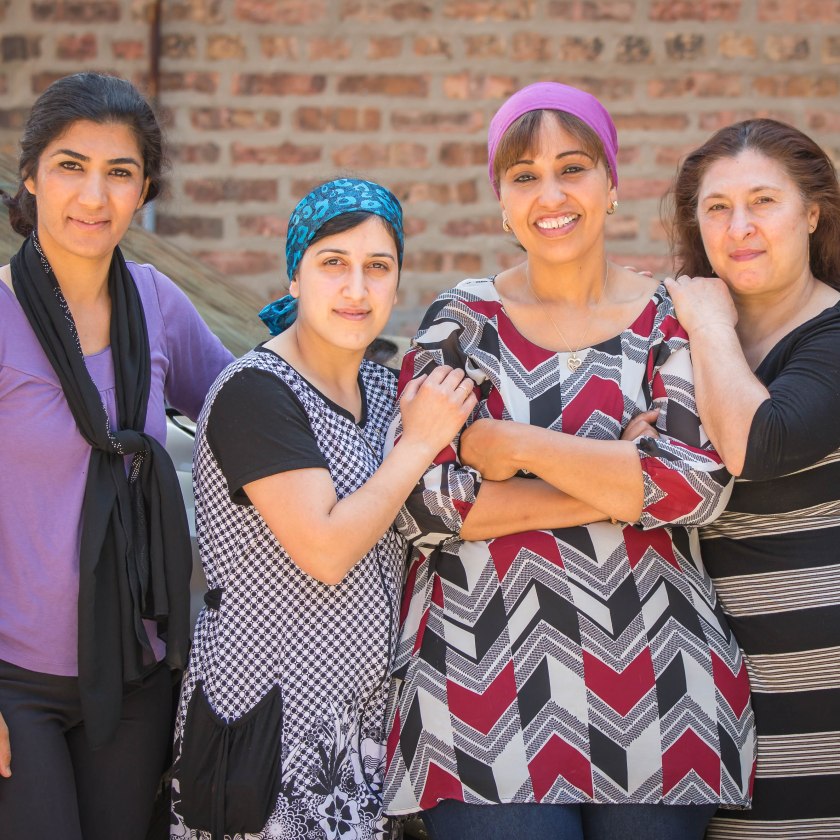

















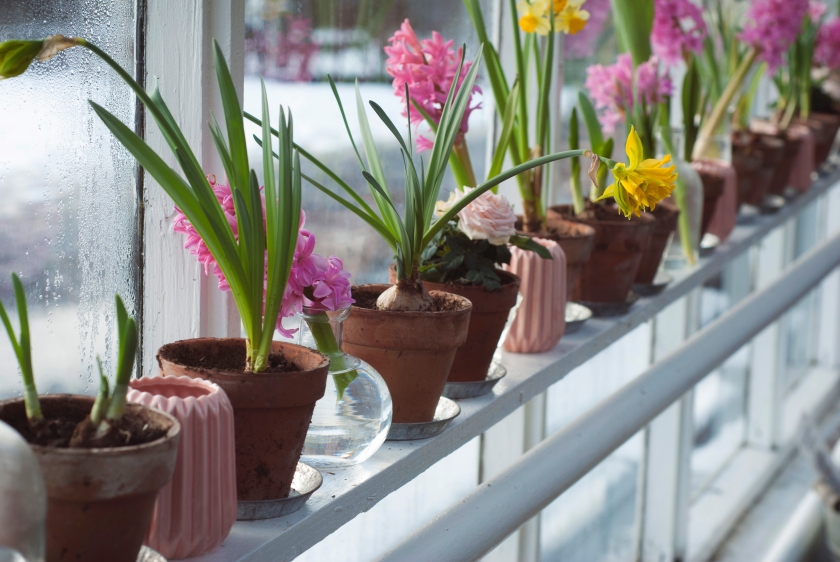







 Warner Bros. Pictures
Warner Bros. Pictures



























 To purchase Everbloom:
To purchase Everbloom: 






 * * * *
* * * *








 My 11 Addresses – What roots have I dug up and transplanted in each Home? What have I left behind? What have I lost? What can be found again to make my current Home thrive?
My 11 Addresses – What roots have I dug up and transplanted in each Home? What have I left behind? What have I lost? What can be found again to make my current Home thrive? To purchase Keeping Place –
To purchase Keeping Place – 







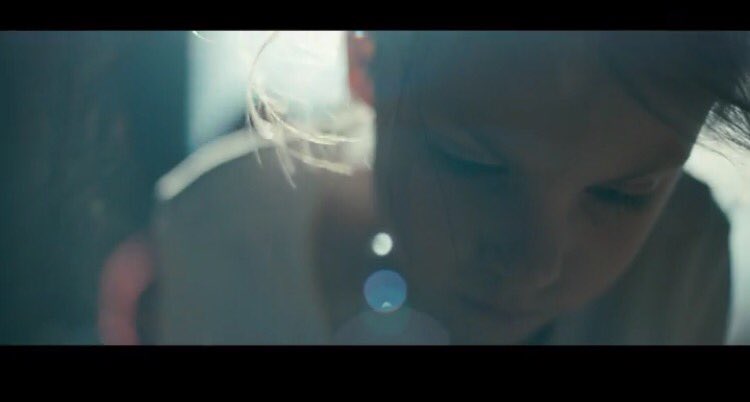

 Please buy the beautiful
Please buy the beautiful 